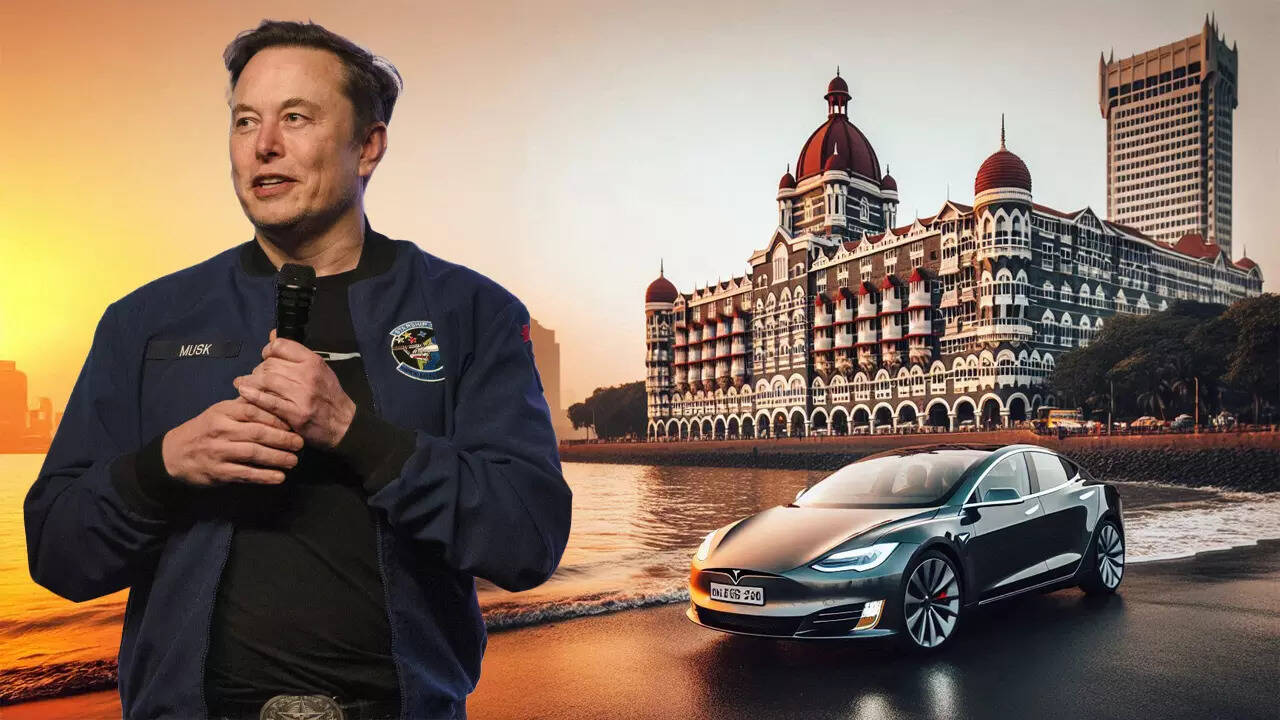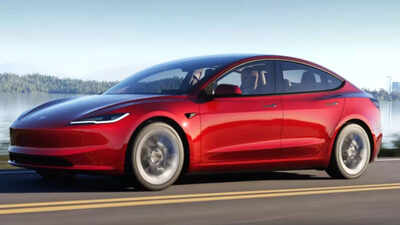Tesla, the global leader in electric vehicles, is officially entering the Indian market with plans to open its first showrooms in Mumbai and New Delhi by July 2025. This move marks a historic milestone for India’s automotive industry and signals a new era of sustainable mobility for Indian consumers. The company’s arrival is expected to reshape the luxury EV segment, spark innovation, and accelerate the nation’s transition to clean transportation.
It’s arrival in India marks a pivotal moment not only for the automotive industry but also for the country’s ambitions to become a global hub for electric vehicles. The company’s decision to open showrooms in Mumbai and New Delhi signals confidence in India’s growing appetite for premium mobility solutions and its readiness to embrace cutting-edge technology. For years, Indian consumers and industry observers have speculated about when and how it would make its move, and now that the moment has arrived, expectations are sky-high.
The Indian automotive market is the third largest in the world, but it has traditionally been dominated by affordable, fuel-efficient vehicles tailored to the needs of a price-conscious population. It’s entry, with its luxury Model Y, represents a significant departure from this norm. The company is betting that a segment of urban, affluent Indians is ready to pay a premium for sustainability, innovation, and the global cachet that comes with owning a Tesla.
It’s initial focus on Mumbai and New Delhi is strategic. These cities are not only India’s wealthiest and most cosmopolitan, but they also have the infrastructure and consumer base to support luxury automotive brands. The presence of high-net-worth individuals, tech industry executives, and environmentally conscious professionals creates a fertile ground for it’s early success. The company’s showrooms are expected to become status symbols in their own right, drawing crowds and media attention.


One of the biggest challenges it faces is India’s high import duties on fully built vehicles, which can reach up to 70%. This makes the Model Y significantly more expensive than in other markets, limiting its appeal to a narrow segment of buyers. While the government has offered tariff reductions for companies willing to invest in local manufacturing, Tesla’s initial approach is cautious—testing the market with imports before committing to large-scale production.
Tesla’s India Launch: Showrooms in Mumbai and New Delhi
It’s India journey begins with the launch of two flagship showrooms—one in Mumbai and the other in New Delhi. The first batch of Tesla Model Y SUVs, imported from the company’s Shanghai factory, has already arrived at Mumbai port. Alongside the vehicles, it has brought in Supercharger units, branded merchandise, and essential parts, signaling a robust commitment to after-sales service and charging infrastructure from the outset. The Mumbai showroom will open first, followed closely by the New Delhi outlet, both targeting urban elites and early adopters eager for cutting-edge technology.
The Indian government’s EV policy is evolving rapidly. Recent incentives and policy tweaks are designed to attract global players like Tesla while encouraging domestic manufacturing and job creation. The government’s willingness to negotiate with Tesla, including the possibility of further tariff reductions and infrastructure support, highlights India’s desire to be seen as an attractive destination for high-tech investment.
Tesla’s entry is expected to have a ripple effect across the Indian auto industry. Domestic manufacturers such as Tata Motors, Mahindra, and MG Motor have already made significant strides in the EV space, but Tesla’s arrival will raise the bar for technology, performance, and customer experience. This could accelerate innovation, drive down prices, and expand the range of EV options available to Indian consumers.
Charging infrastructure remains a major hurdle for EV adoption in India. Tesla’s decision to import Supercharger units and establish a proprietary charging network could be a game-changer. If successful, it may force other automakers and infrastructure providers to upgrade their offerings, leading to broader improvements in convenience and reliability for all EV owners.
The environmental implications of Tesla’s entry are significant. As India grapples with urban air pollution and climate change, the shift to electric mobility is seen as a crucial part of the country’s sustainability agenda. Tesla’s presence will not only raise awareness about EVs but also put pressure on policymakers to support clean energy initiatives and phase out fossil fuel subsidies.


High Tariffs and Market Realities
Despite the excitement, Tesla faces significant hurdles in India’s value-driven market. The Model Y, declared at ₹2.77 million ($31,988), will cost over $56,000 after India’s steep import duties—making it a luxury purchase far beyond the reach of most buyers. While the government has recently reduced tariffs on luxury EVs and offered incentives for local manufacturing, Tesla’s initial offering is limited to imports. This positions Tesla as a niche player in a market where domestic brands like Tata Motors and Mahindra are rapidly expanding their more affordable EV lineups.
Consumer expectations for Tesla are extremely high. Indian buyers are known for their attention to value, reliability, and after-sales service. Tesla will need to deliver a seamless ownership experience, from test drives and financing to maintenance and software updates. Any missteps could quickly damage its premium brand image and give competitors an opening.
Tesla’s global reputation for innovation is built on its advanced battery technology, over-the-air software updates, and Autopilot features. Indian consumers, especially tech-savvy early adopters, are eager to experience these innovations firsthand. However, regulatory approval for features like autonomous driving may take time, as Indian authorities assess safety and compliance issues.
The company’s decision to begin with the Model Y, a globally popular SUV, reflects its understanding of Indian market preferences. SUVs are among the fastest-growing segments in India, favored for their road presence, versatility, and perceived safety. The Model Y’s blend of performance, range, and technology is likely to appeal to urban families and professionals.
Tesla’s entry comes at a time when India is positioning itself as a global manufacturing hub. The government’s “Make in India” initiative aims to attract foreign investment and boost local production. If Tesla commits to building a factory in India, it could create thousands of jobs, spur the development of a local supply chain, and position India as an export hub for right-hand-drive markets in Asia and beyond.
Policy, Manufacturing, and the Future
The Indian government is keen on attracting global investment while ensuring job creation and technology transfer. Tesla has reportedly considered building a $2–3 billion factory with a 500,000-vehicle annual capacity, but no formal announcement has been made. Ongoing policy dialogue will determine whether Tesla transitions from an import-based strategy to local manufacturing, which could dramatically lower prices and expand its reach. The company’s long-term success in India will depend on its ability to navigate regulatory complexities, meet consumer expectations, and invest in local production.
The leadership transition at Tesla India, following the resignation of country head Prashanth Menon, has raised questions about the company’s long-term strategy. Industry observers are watching closely to see who will be appointed to steer Tesla’s India operations and how the company will navigate the complex regulatory and business environment.
Tesla’s approach to marketing in India is expected to be digital-first, leveraging social media, influencer partnerships, and experiential events to build buzz. The company’s minimalist showrooms and direct-to-consumer sales model may disrupt traditional dealership networks, challenging established norms in the Indian auto industry.
For Indian consumers, Tesla’s arrival is more than just a new car launch—it’s a cultural moment. The brand’s association with innovation, sustainability, and global luxury resonates with a generation that aspires to be part of the global mainstream. Owning a Tesla is likely to become a status symbol, reflecting both environmental consciousness and technological sophistication.
The competitive landscape for EVs in India is heating up. In addition to domestic players, global automakers like Hyundai, Kia, and BYD are expanding their EV portfolios. Tesla’s entry will intensify this competition, potentially leading to price wars, better features, and more choices for consumers.
)
)
The Road Ahead—Opportunities and Risks
Tesla’s India entry is a watershed moment for the country’s automotive and clean energy sectors. If successful, Tesla could catalyze a wave of innovation, investment, and environmental progress. However, the company must overcome high tariffs, fierce competition, and the challenge of building a reliable charging network. For Indian consumers, Tesla’s arrival is a sign of the nation’s growing global importance. For the industry, it’s a wake-up call to accelerate the shift to electric mobility and sustainable practices.
Tesla’s Supercharger network, if expanded aggressively, could set new standards for charging speed and convenience. This would address one of the main concerns of potential EV buyers—range anxiety—and make long-distance travel more feasible. The company’s willingness to partner with local utilities and infrastructure providers will be crucial to scaling up its charging network.
Policy uncertainty remains a challenge. Changes in import duties, EV incentives, and local content requirements could impact Tesla’s pricing and profitability. The company will need to maintain close engagement with policymakers and industry bodies to ensure a stable and supportive regulatory environment.
Tesla’s presence is also expected to boost India’s startup ecosystem. As the EV market grows, opportunities will emerge for startups in battery technology, charging solutions, fleet management, and mobility services. Tesla’s supply chain requirements could spur the growth of new suppliers and service providers across the country.
Follow: Tesla

